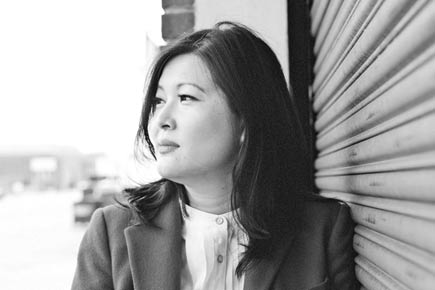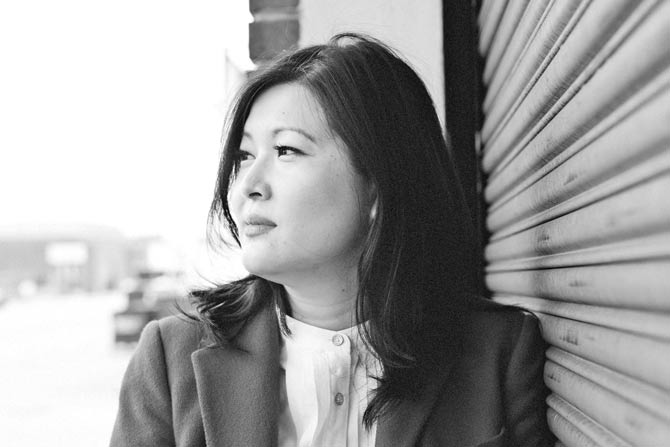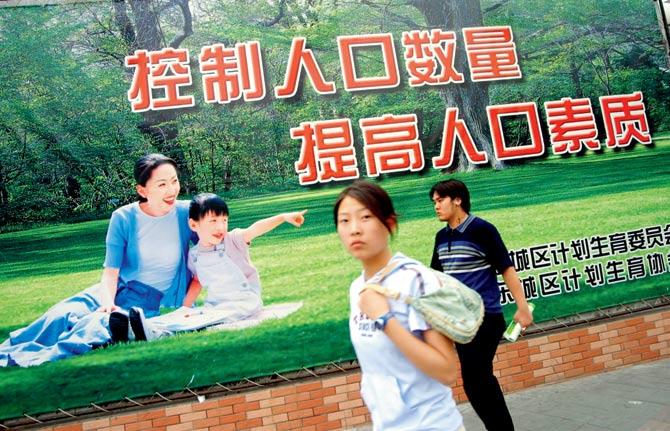Pulitzer Prize-winning journalist, Mei Fong, walks among the ghosts of China’s lost children as she explores the human and economic cost of the brutally enforced one-child policy

Journalist Mei Fongu00c3u00a2u00c2u0080u00c2u0099s One-Child: The Story of Chinau00c3u00a2u00c2u0080u00c2u0099s Most Radical Experiment is a comprehensive analysis of the many ripples of the flawed programme
 An uncle is never just 'uncle,' for example: he could be bobo if he was your father’s older brother, shushu if younger, jiujiu if he was your mother’s brother, and so on. Little Stream would never just be 'sister' to Jiayi's unborn child, for there is no plain-vanilla Chinese equivalent of that word. She would always be jiejie — 'older sister.' But, this elaborate taxonomy is collapsing. By the time Little Stream has her own children, many of these terms will be as archaic as Latin."
An uncle is never just 'uncle,' for example: he could be bobo if he was your father’s older brother, shushu if younger, jiujiu if he was your mother’s brother, and so on. Little Stream would never just be 'sister' to Jiayi's unborn child, for there is no plain-vanilla Chinese equivalent of that word. She would always be jiejie — 'older sister.' But, this elaborate taxonomy is collapsing. By the time Little Stream has her own children, many of these terms will be as archaic as Latin."

Journalist Mei Fong’s One-Child: The Story of China’s Most Radical Experiment is a comprehensive analysis of the many ripples of the flawed programme
ADVERTISEMENT
Imagine, a family gathering without chachas, mamas, phuphis, taais, mausis and buaas. It’s enough to make Bollywood shudder. But, such an image is just one cold, silent frame of the depressing future that awaits China in the wake of its one-child policy, an excessive scheme that was engineered by military rather than social scientists, according Pulitzer-prize winning American reporter Mei Fong.
Peppered with deeply personal accounts and thoroughly-researched, One-Child: The Story of China’s Most Radical Experiment, is Fong’s comprehensive analysis of the many ripples of the one-child programme: Gender imbalance that sometimes manifests as entire villages full of bachelors, a growing market for brides, the spiraling sales of sex dolls, the trauma of forced abortions and sterilisations, a rapidly-ageing population, the grief of families who lose their only children in a culture where family is sacrosanct, and perhaps worst of all, the alienation that childless couples suffer at old age.
It’s a weighty subject, one that Fong, incredibly, lightens up with cleverly interspersed moments of humour in the form of mistranslated signs, “part of the city’s crooked charm,” that disappeared as China prepared to host the Olympics, her first-person experiences of dating events, unusual festivals and rituals and crazy laws (one that was passed in Gansu Province in 1988 prohibited "reproduction of the dull-witted, idiots or blockheads.").

A pedestrian walks past a billboard reading, Control population growth, and raise the quality of the population, in Beijing, China in 2003. In an effort to control the rapid population, the government implemented a single-child policy in the 1970s, aiming to keep the count below 1.6 billion until 2050 with zero population growth. Pic/Getty Images
In an interview, the author discusses her new book. Excerpts:
Q. Do you worry about censorship/being banned from China?
A. I am wary of it, but I am not and have never been a Chinese citizen, so I think that helps a little. The long and short of it is that I will not publish on the mainland or in such a way that the book would be censored. There have been cases where HK booksellers with passports from other nations have been detained in China (for being critical of the regime). I think the possibility is small, but I don’t want to risk it. I am mother to small children.
Q. There were, as you point out, many exceptions to the one-child policy. How then, are its effects so dramatic?
A. It is a misnomer of a name —everyone wasn’t subject to the one-child policy, but everyone was restricted to some family size. A full third of Chinese households was subject to a strict one-child rule and the other two-thirds would have some variation of the one-child policy. So, for example, they may be allowed to have more than one child under certain exceptions, say if you're part of the minority tribes or if you live in rural areas and your first child was a girl. But, it still didn’t mean that you can have as many children as you want. You’re still subject to restrictions including sterilisations once your quota is done. Besides, the third that was subject to the rule comprised mostly of urban dwellers from the richest cities. So, in terms of buying power, consumption, in terms of elite decision making, this is the sector that's most affected. These are your major economic movers, people who buy your Samsungs and iPhones, they are the brain trust, and that has economic implications too.
Q. While the policy led to a skewed sex ratio, it also produced a band of high-achieving women as their families’ resources were dedicated exclusively to them. Do you feel the policy has brought about any change in mindset with regards to the capabilities of women and perspectives towards the girl child?
A. I think it has definitely helped. In families where they can’t have sons, they very pragmatically divert resources to the daughter. But, these changes about the valuation of the girls, women's rights, have also been happening in other parts of the world. It goes hand in hand with modernisation, women’s education and so forth. So, could these desirable effects have been achieved without the excesses of the one-child policy? Women achieve to a greater degree in China, but look at their peers in South Korea, Taiwan, India too, in some parts. These countries have made the same gains without the pain associated with this policy.
In the second part of the book I also talk about how there's a backlash against this rising tide of feminism in China. These educated women who are seen as prime child-bearers are subject to a lot of pressure to marry early and even shamed into getting married with the 'leftover women' campaign. So, those are some of the undesirable effects.
Q. Which stories and experiences were particularly memorable?
A. Lots of them. Some were so bizarre, I couldn’t even put them in the book. For instance, I wanted to write about how flyers were put up in the university district asking people to come and test sex dolls. The area where this was happening was called, Long Dong, which means Dragon’s Cave in Chinese. I thought, people in the West are going to think I'm making this up — you know, sex dolls, long dong (laughs).
There was another one that was very random. I met this relative of a friend of mine who was just giving us a ride. He used to be a small town official and had to enforce the rules. He told me about this night-time raid on a pregnant woman, how they chased her into a pond and she stood inside the pond crying. Maybe because I’m a writer, the imagery of this woman in the dark, up to her neck in water, heavily pregnant, crying while these birth officials circle round the pond like predators at a watering hole, transfixed me. It was very strong imagery. When this man, who seemed so blasé, recalled it all, it was clear that underneath it all there were these very strong issues of guilt.
Q. At the root of the one-child policy was of course, the goal of prosperity. China’s GDP has gone up. So, would you say the policy delivered on its goals?
A. A lot of economists agree that the last 30 years of growth were because of other things. China removed socialist controls from the economy, which let private entrepreneurship flourish, encouraged foreign investment…one of the reasons for China’s growth was its huge workforce — more people, not less. One of the after-effects of the policy is a diminished workforce. This will probably slow economic growth going ahead.
Yes, population reduction was useful, but did they need to enforce it so severely? The answer is 'No'. The “Later, Longer, Fewer” programme that was in place 10 years before the one-child policy saw sharp reductions and families dropped from six kids to three. In East Asian countries, population fell as an effect of education and opportunities — it happened anyway without the one-child policy. Nature makes a few more boys than girls to compensate for men dying young, because of violence etc. So, the global average is about 105/107 boys:100 girls.
In India, where there's also a gender preference, the average is 110:100. In China, it's 116:100 — the highest in the world. So, it’s accelerated certain existing tendencies. Similarly, with ageing societies — all across the world, any place where there are smaller families, over time, you will have a disproportionate ratio of young people to old people. But, what took 50 years to happen in Europe, has taken half the time to happen in China — 25 years, one generation. Europe had the time to generate wealth, build social networks, China has arrived at this level without arriving at First World per capita income.
 Subscribe today by clicking the link and stay updated with the latest news!" Click here!
Subscribe today by clicking the link and stay updated with the latest news!" Click here!







